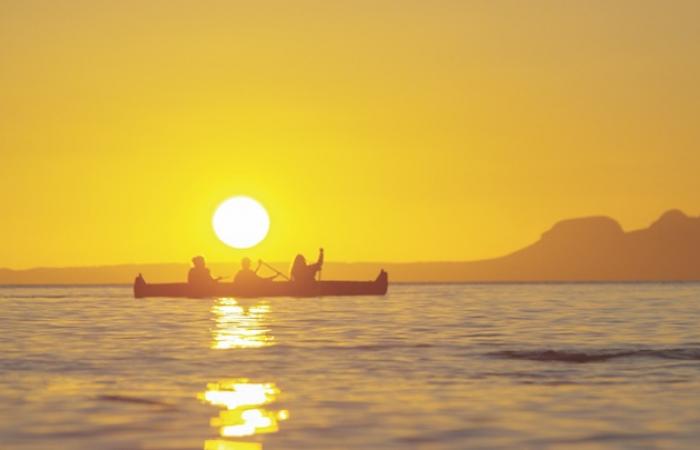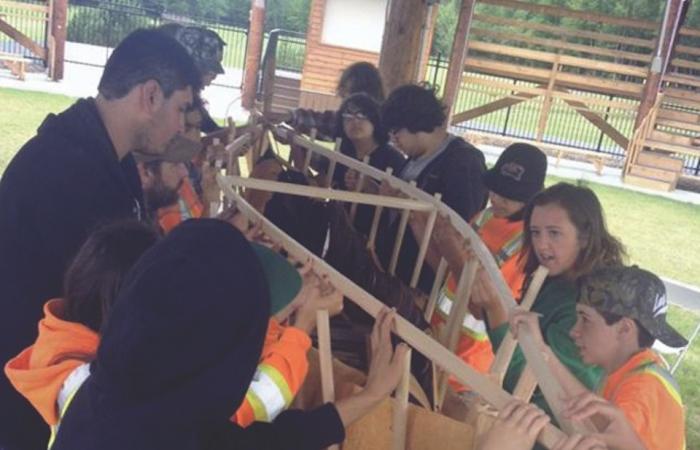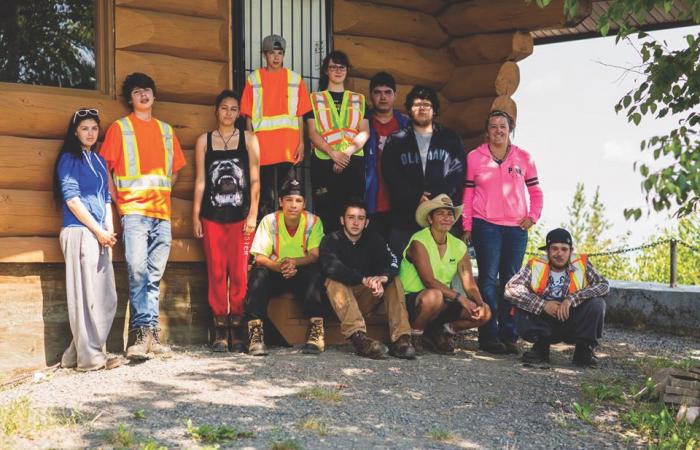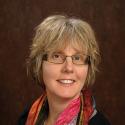In these ever-changing times, many traditions that were once passed on from one generation to the next, are being forgotten and lost. Past practices that were once seen as an important part to our survival, are no longer seen as necessary, and knowledge is lost from our culture as our elders pass away and take their expertise with them. It is a sad loss.
Gail Bannon, leader of the Mountain Keeper Program at Anemki Wajiw, doesn’t want to see the traditions of her ancestors forgotten and is focused on bringing these skills back to the youth.
As the head of the Fort William First Nation High School Student Employment Program (FWFNHSEP) at Anemki Wajiw (Mount MacKay), Bannon wants her students to become “Keepers of the Mountain” in its truest sense.
Determined to provide ways for the youth to reconnect with their roots, she set out to add more programs to their schedules. Students began to learn
how to identify plants and their uses, how to use flint and steel to start a fire, and other bush survival skills including how to build a birch bark canoe.
“I had no knowledge of how to build a canoe,” Bannon admits. “And when I searched for someone in our area who had these skills I came to the sad conclusion that even though we were a community that lived beside the water, canoe building had become a lost art.”
She finally connected with Darren Lentz, the principal at Kingsway Public School and a certified canoe and white-water instructor, to share his skills.
They set out a plan. Lentz would offer his expertise and teach Bannon while teaching the youth: five years, one canoe each year, until Bannon had gained the skills and could manage the program herself. Now into the fourth year of the project, Bannon is quite confident that the youth have learned the skills, and with some help will be able to continue the “new” tradition.
The process of building the canoe takes an average of six weeks to complete. It begins with gathering the materials such as birch bark, black spruce roots, and moose rawhide, then “sewing” the birch bark together using the roots and finally caulking the seams. Because the traditional use of black pitch caulking—combining animal fat, spruce gum, and ash—requires continual maintenance, Bannon has opted to use the more modern and conventional marine caulking. “Other than the marine caulking, everything is as traditional as we can make it,” Bannon says.
And they work. The canoes aren’t just for decoration. After completing their canoes, the youth adorn lifejackets and paddles and launch their creations into the waters of Lake Superior. “It brings me to tears every time I see their faces,” Bannon says. “Their smiles, their excitement, knowing that they are paddling a canoe that they created, seeing that all their hard work has paid off, is a wonderful thing.”
There is more to this experience than simply learning how to build a canoe. Teens develop confidence and leadership skills—qualities that they take with them when they leave high school and apply for college or university and enter the work force. “I have seen many students who have difficulties in the classroom setting excel when they take part in our program,” Bannon says. “Shy teens become leaders. Kids more connected to their cell phones learn to connect with the bush and the waters around them. And,” she adds, “they are happier. There is a lot of sadness in our youth,” Bannon reflects. “They think that they have so much freedom now but they don’t. Their devices tie them down. There’s no freedom there.”
The students are also developing life skills. Bannon often tells the teens that if they pay attention to how something is made, whether it’s a basket or a canoe, they now have a skill that can help them survive. “You won’t go broke or go hungry if you have a skill,” she reminds them.
All in all, the youth are learning to reconnect with the land and bring back the ways of the bush. And most importantly, traditions and skills that were at risk of being lost, are being learned, and will, in turn, be passed onto the next generation. Hopefully, to never be lost again.
For more information about the program or if you would like to help out in any way, please contact Gail Bannon at gailrbannon@fwfn.com







